EMS Profiles | Meet Tamara Moss
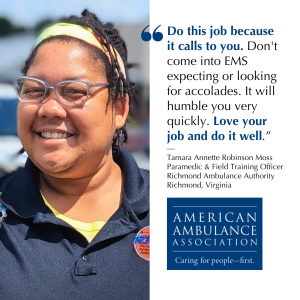 Tamara Annette Robinson Moss
Tamara Annette Robinson Moss
Paramedic & Field Training Officer
Richmond Ambulance Authority
Richmond, VA
Share on Facebook | LinkedIn | Instagram | X
How did you come to be in EMS?
When I was little, I always thought it was cool that ambulances saved people, but it never occurred to me that there were actual people in the ambulance. When I got a little older and learned about EMS, I obtained my EMT certification as soon as I could at age 16.
What do you love about working in EMS?
It’s something new every day! I get to meet some amazing people. Colleagues quickly become friends.
Do you have any advice for someone considering becoming an EMT or Paramedic?
Do this job because it calls to you. Don’t come into EMS expecting or looking for accolades. It will humble you very quickly. Love your job and do it well. Learn something new every day, and when you think you know everything, it’s time for a new job!
Anything else you’d like to say?
I love this job! It’s demanding, but rewarding. I love being a representation and example of the amazing things that black women can do! Black girl magic is real!


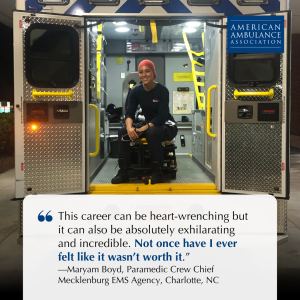
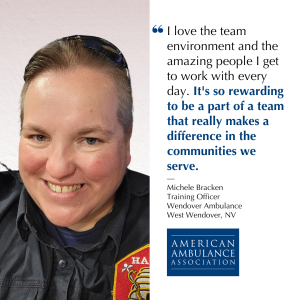 Michele Bracken
Michele Bracken
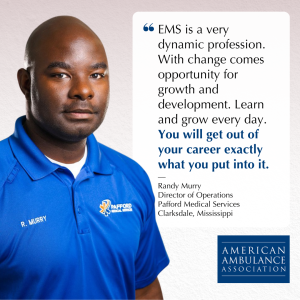 Randy Murry
Randy Murry

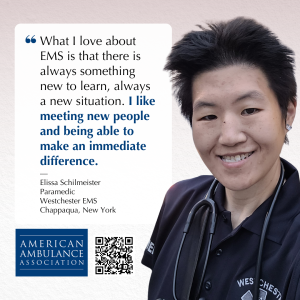

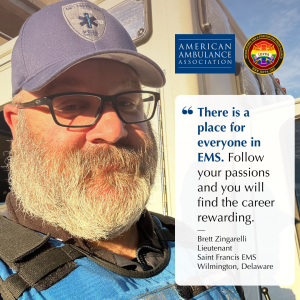 Brett Zingarelli
Brett Zingarelli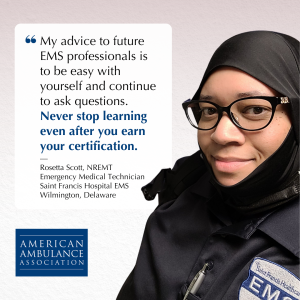 Rosetta Scott, NREMT
Rosetta Scott, NREMT
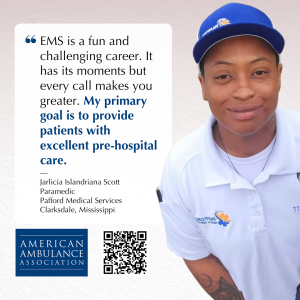

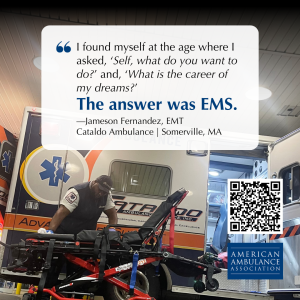 Jameson Fernandez
Jameson Fernandez

